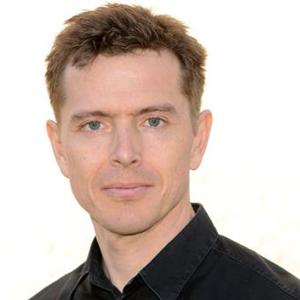The projects are based on Linköping University collaborating with other universities and sharing infrastructure, in research networks with nodes spread across Sweden.
ARTEMI is the only project to receive a grant in which LiU is principal applicant. It offers national research infrastructure for electron microscopy, a fundamental technique used in the materials science research carried out at Advanced Functional Materials in the Department of Physics, Chemistry and Biology. Per Persson, professor in thin-film physics and national coordinator for ARTEMI, will work with the project and continue to offer expertise and equipment to scientists throughout Sweden. One possible investment is a new advanced microscope to replace the current one in use in Ångströmhuset.
Read more about Per Persson and ARTEMI.
Visualiseringscenter C Foto Peter Holgersson AB
Anders Ynnerman has taken the initiative to the InfraVis project, which also has received a grant for infrastructure. He is professor in the Department of Science and Technology, and will chair the steering group. This initiative is to meet the increased needs of the research world for the visual representation of large amounts of complex data. The Division for Media and Information Technology will constitute the largest node in the network and will offer infrastructure with a new type of hardware and, more importantly, new software and expertise.
Read more about Anders Ynnerman and InfraVis.
Maria Sunnerhagen
The SwedNMR project is a new network for research using NMR, a unique method used to study molecular dynamics and interactions with the aid of nuclear magnetic resonance. Maria Sunnerhagen, professor in the Division of Chemistry at LiU, will lead the node in Linköping. The grant will be used to make it easier for established and new users to gain as much benefit as possible from their NMR experiments.
Read more about Maria Sunnerhagen och SwedNMR.
Chemical Biology Consortium Sweden is a collaboration between institutions of higher education throughout Sweden, and has also received financing from the Swedish Research Council. Maria Lerm and Fredrik Elinder, professors in the Department of Biomedical and Clinical Sciences, will receive funding to build a node at Linköping University. The grant will give access to a library of hundreds of thousands of molecules and equipment that can be used in their analysis. It will also allow the employment of necessary experts, and the purchase of a machine for automatic electrophysiology measurements.
Read more about Fredrik Elinder, Maria Lerm and Kemiskt biologiskt Konsortium.




